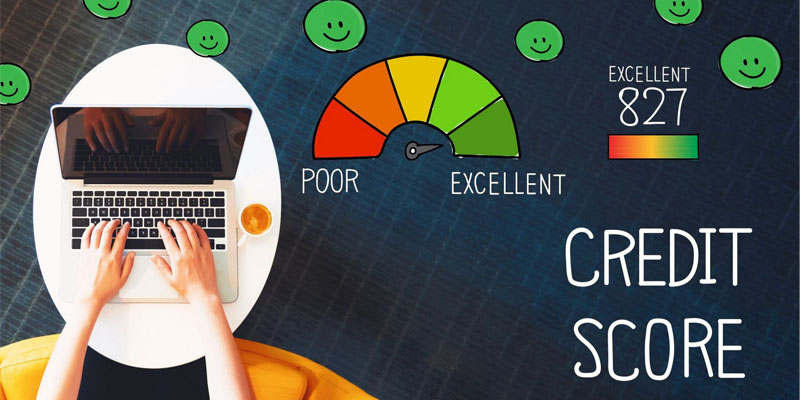If you want to boost your credit score, you’re going to need to get familiar with your credit report and figure out where you’re making mistakes (if you are indeed making any at all). Once you have that information, it should be much easier to move forward on the right path toward higher credit scores! Here are seven tips to help you boost your credit score in no time at all.
1: Check your score
Your starting point is checking your credit score. It will provide you with an overview of what’s happening with all three major bureaus and show you where there are opportunities for improvement. You can check each bureau individually or get a free snapshot from Credit Karma, which offers quick access to a wide range of information. While some people might be tempted to just go straight for a free credit report, keep in mind that it won’t be very detailed and won’t give you much context about how one factor affects another—for example, why certain collections on one bureau don’t have any effect on another—so it won’t tell you much more than here are your scores
2: Pay off debt
One of your best bets for improving your credit score is by paying off debt. The more utilization you have, or how much you owe versus how much credit you have available, the lower your score. If you pay off a $4,000 balance and cut down on utilization from 60 percent to 20 percent, for example, it will improve your score by 100 points or more—and that’s a great start on boosting your FICO. No matter what type of debt you have (credit cards, medical bills, student loans), an effective strategy might be taking care of one account at a time as you build up your ability to make larger payments. Make sure every dollar counts when repaying creditors; also consider taking advantage of opportunities to negotiate terms with them so they aren’t sending notices threatening legal action.
3: Don’t open too many new cards
Opening too many new credit cards at once is a bad idea. Your debt-to-credit ratio (or DTI) will be too high and you risk lowering your credit score, which can make it more difficult to buy a house or even rent an apartment. In addition, opening several new accounts within a short period of time may trigger an investigation from one or all three major credit bureaus. This could lead to hard inquiries on your reports and possibly hurt your score further. If you’re going to open multiple new accounts, spread them out over a couple of months—ideally 6-12 months—so they don’t show up as multiple hits on your report(s). And remember: Always pay off credit card balances in full each month so that carrying debt doesn’t become an issue for you!
4: Stay on top of bills
If you want a good credit score, you’ll need to stay on top of bill payments. Miss one payment and be sure that it will take years for you to recover—even if you pay all of your other bills right on time. Paying bills on time and keeping debt low are essential factors of healthy credit history. But many people don’t understand how they impact their scores. Fortunately, it’s easy to learn how you can improve your credit standing by making simple changes:
(1) Keep an eye on due dates;
(2) Pay as much as possible;
(3) Never charge more than 30% of total available credit;
(4) Take care with opening new accounts;
(5) Don’t close existing accounts unless absolutely necessary.
These sound like basic financial tips, but most people have little trouble executing them well! To boost your score by 50 points or more you’ll need to make a few bigger changes. Do yourself a favor and follow these four pieces of advice:
(1) Keep credit card balances under 30% of available credit;
(2) Make sure at least one account has been open for 6 months;
(3) Have no inquiries from new creditors within last 6 months;
(4) Keep the amount of newly opened accounts to a minimum each year.

5: Ask for a higher limit
Applying for a small credit limit is one of the quickest ways to shoot yourself in the foot when it comes to building or boosting your credit score.
Why?
Because it’s an easy way for banks and other lenders to see you as a risky candidate. That’s because, if you have a low limit on an account — especially an installment loan such as a mortgage — then it makes lenders think that you’re not responsible enough with money.
6: Get a secured card
A secured card is a great way to boost your credit score quickly because of its safe nature. With a secured card, you deposit money into an account, and that amount becomes your limit—meaning you aren’t racking up interest. If you make on-time payments for 12 months, it will help build trust with creditors, which is why getting a new card can help your standing immensely. Most secured cards don’t charge annual fees, either! Best of all: No one will know about it but you! Need more advice? See our full guide on how to boost your credit score.
7: Keep an eye on new accounts
New accounts, or inquiries, have a disproportionate impact on your credit score. When you apply for a loan, car or even a new cell phone contract, a hard inquiry will appear on your credit report for that account. Too many inquiries can lower your overall credit score because it appears as if you’re desperate for financing (which isn’t good).
For every new account you open up, you should plan on waiting at least 6 months before applying for another one. This will make sure inquiries don’t damage your score and give you time to pay off balances from previous accounts so they do not become delinquent. It’s also important to remember; if you close an account with a balance due and then reapply for that same line of credit within 5 years, it is viewed as opening up a new account and not just replacing old debt with new debt – so only close lines of credit when absolutely necessary.





